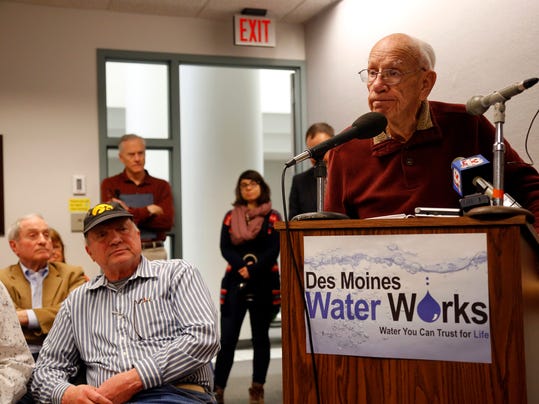Natalie M. Topinka
Environmental Scientist
U.S. Environmental Protection Agency, Region 5 Air Enforcement and
Compliance Assurance Branch
77 West Jackson Boulevard (AE-17J)
Chicago, IL 60604
ph: (312) 886-3853
fax: (312) 692-2410
email: topinka.natalie@epa.gov
To clarify, enforcement settlements, including the full settlement documents which describe the terms of the settlement and amount of penalty assessed, are public records. There is not even a need to send a Freedom of Information Act request for these documents because they will be published on EPA's Region 5 enforcement website when they are finalized. However, it is the discussions which lead to the settlement that are confidential, as is the case with any legal dispute between two parties.
Regarding the penalty, EPA does not have the authority under the Clean Air Act to designate a recipient of the penalty dollars. However, in some cases, a company may voluntarily choose to mitigate a portion of the penalty by performing a Supplemental Environmental Project (SEP), which EPA encourages to be performed in the community of the violating facility. In this way, the settlement of a Clean Air Act violation may be able to achieve additional environmental benefits (above and beyond correction of the original violation). A SEP must meet specific criteria according to the SEP policy approved by Congress, and EPA cannot require a company to perform a SEP as part of a settlement. See this link for more information about SEPs: http://www2.epa.gov/enforcement/supplemental-environmental-projects-seps
Protecting the environment is everyone's responsibility. Help EPA
fight pollution by reporting possible harmful environmental activity.
To do so, visit EPA's website at
http://www.epa.gov/compliance/complaints/index.html
Environmental Scientist
U.S. Environmental Protection Agency, Region 5 Air Enforcement and
Compliance Assurance Branch
77 West Jackson Boulevard (AE-17J)
Chicago, IL 60604
ph: (312) 886-3853
fax: (312) 692-2410
email: topinka.natalie@epa.gov
To clarify, enforcement settlements, including the full settlement documents which describe the terms of the settlement and amount of penalty assessed, are public records. There is not even a need to send a Freedom of Information Act request for these documents because they will be published on EPA's Region 5 enforcement website when they are finalized. However, it is the discussions which lead to the settlement that are confidential, as is the case with any legal dispute between two parties.
Regarding the penalty, EPA does not have the authority under the Clean Air Act to designate a recipient of the penalty dollars. However, in some cases, a company may voluntarily choose to mitigate a portion of the penalty by performing a Supplemental Environmental Project (SEP), which EPA encourages to be performed in the community of the violating facility. In this way, the settlement of a Clean Air Act violation may be able to achieve additional environmental benefits (above and beyond correction of the original violation). A SEP must meet specific criteria according to the SEP policy approved by Congress, and EPA cannot require a company to perform a SEP as part of a settlement. See this link for more information about SEPs: http://www2.epa.gov/enforcement/supplemental-environmental-projects-seps
Protecting the environment is everyone's responsibility. Help EPA
fight pollution by reporting possible harmful environmental activity.
To do so, visit EPA's website at
http://www.epa.gov/compliance/complaints/index.html




 one in five jobs tied to abundant, high quality fresh water – vulnerable to a catastrophic oil spill from a pair of aging pipelines that push 23 million gallons of oil a day through the Straits of Mackinac, said leaders of the Oil & Water Don’t Mix campaign
one in five jobs tied to abundant, high quality fresh water – vulnerable to a catastrophic oil spill from a pair of aging pipelines that push 23 million gallons of oil a day through the Straits of Mackinac, said leaders of the Oil & Water Don’t Mix campaign